Recent Articles
Popular Makes
Body Types
Top 10 Most Expensive Vehicle Repairs
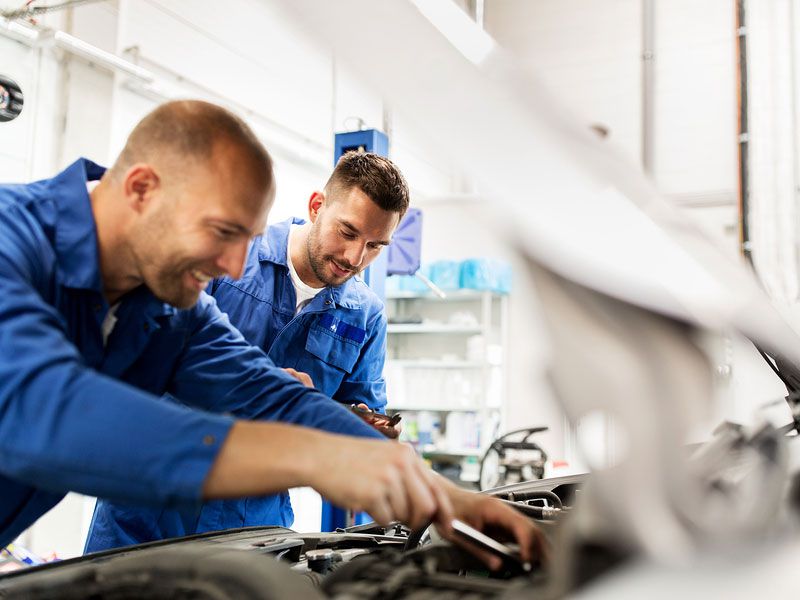
bigstock auto service repair maintenance ・ Photo by Big Stock
Getting your vehicle fixed can be painfully expensive. The worst part is that breakdowns usually happen with little or no warning. If you don't have money in the bank, it may be a while before you're driving again.
With that in mind, here are 10 vehicle repairs that are typically among the most expensive you are likely to encounter. They're not arranged in any particular order, because the price of any repair varies widely by the make and model of your vehicle. The best way to use this list is to ask about and test each of these areas before you purchase any used vehicle, especially in private-party transactions. Always insist on a pre-purchase inspection by an independent repair shop to check on these and other signs of impending repair bills.
Replacing a Transmission
A transmission is one of the most complex parts of any vehicle, and modern transmissions have become much more complex than the units available even 10 years ago.
All transmissions rely on internal lubricants to keep their gears meshing smoothly. A transmission that loses fluid is likely to wear out its internal bearings and stop working, sometimes suddenly while you're driving. Be on the lookout for strange howls and vibrations while you're driving. If your transmission starts slipping, have it looked at right away.
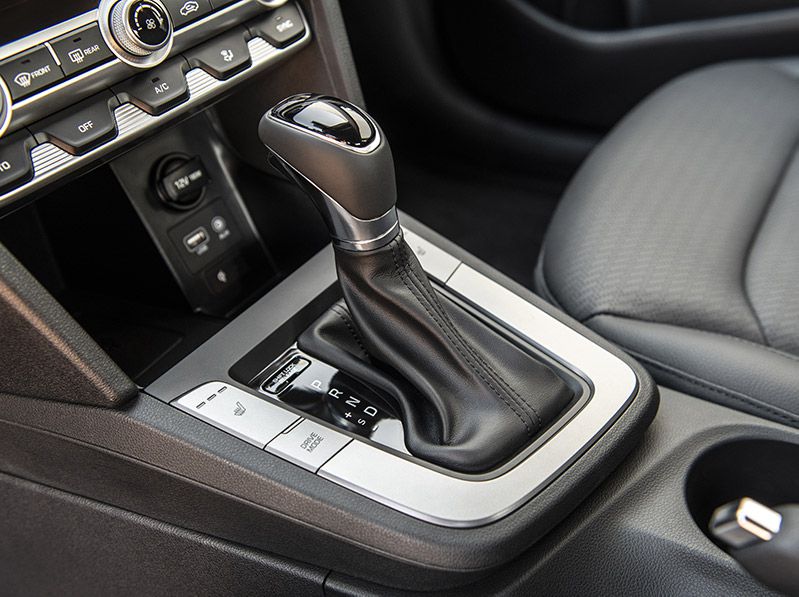
Photo by Hyundai
Overhauling or Replacing an Engine
There are endless scenarios that require engine replacement, but two of the most common are running out of oil and consistent overheating.
Older and high-mileage engines can tend to use up engine oil. If you see the engine oil pressure or oil level warning lights come on, even if they just flicker for an instant, stop and check your oil level immediately. The correct type of oil to use in the vehicle is printed on a sticker in the engine bay. If the engine consistently overheats, the head gasket and other seals can fail. The head gasket is what keeps oil and coolant out of the combustion chambers. If a vehicle is blowing sweet-smelling steam out of the exhaust pipe and running rough, that's probably a blown head gasket.
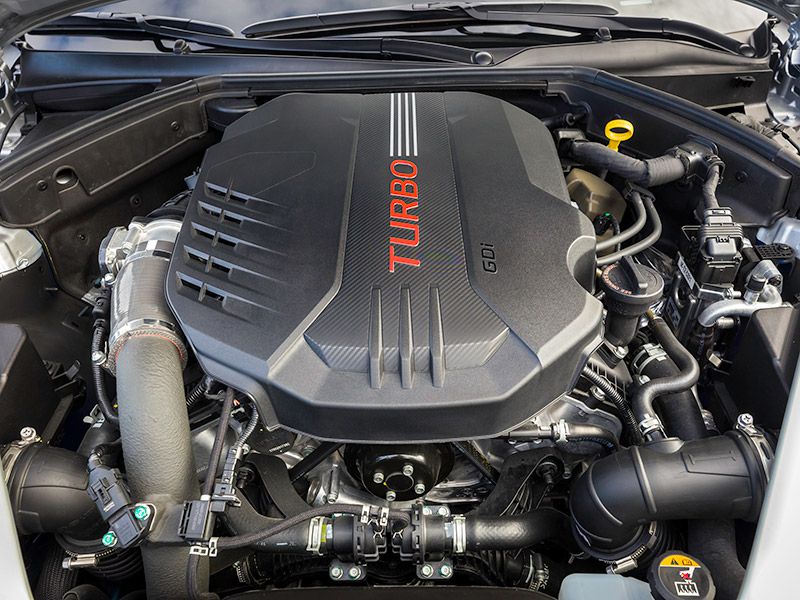
Photo by Genesis
Broken Timing Belt Repairs
One common and expensive problem happens when a vehicle's timing belt is not replaced at the specified time. If the belt is not replaced on schedule, it is likely to break. If that happens, the engine will stop running on the spot because the valves will stop moving in time with the rest of the engine.
When the valves stop, the rest of the engine continues to rotate for a moment. If the pistons come up and hit the open valves, that means the cylinder head has to be removed and repaired or replaced. At a minimum, the cylinder head is an expensive repair. If the pistons were also damaged, it could require overhauling or replacing the entire engine. Pro tip: Many used vehicles for sale have not had the timing belts replaced, so be sure to ask for proof that this service has been performed if the vehicle's maintenance schedule calls for it.
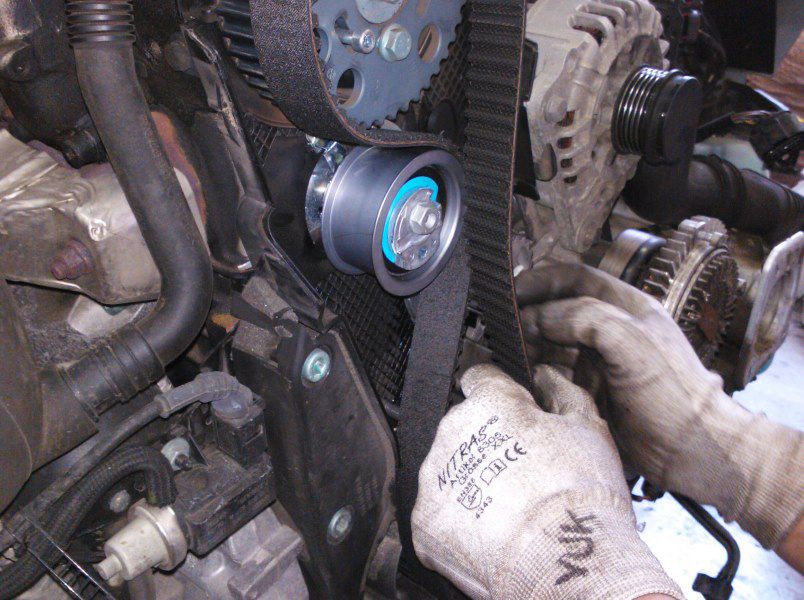
Photo by Wikimedia Commons
Brake Overhaul
There's more to a brake overhaul than just replacing some pads. Brake rotors or drums can get expensive, along with flex lines and master cylinders. Modern cars have complicated systems including anti-lock, power assistance, and electronic parking brakes. A system-wide brake failure can be an expensive problem.
The main thing you can do to preserve your vehicle's brakes is to pay attention when driving. The abrasive disc brake pads that help you stop your vehicle have wear indicators made of a tab of spring steel. When your brake pads are almost worn down, the steel tab starts to rub on the brake rotor. This action makes a screeching noise you can't ignore. You should always replace your pads and have your rotors inspected when the wear indicators start to make noise. If you let it go, all the pad material can be worn away and the steel backing plate of the pad will abrade away the brake rotors quickly. If that happens, you're in for an overhaul instead of a pad replacement.

Photo by Porsche
Crash Repair
Repairing crash damage can cost far more than a vehicle is worth. That's why so many vehicles are "totaled" after a minor collision. It's not that they can't be fixed, but that it's too expensive to justify the work.
For example, replacing deployed airbags alone can cost thousands of dollars. Then the vehicle should be checked for damage to the frame or unibody structure. After those issues are handled, there's still the issue of replacement body panels and repainting, as well as replacing glass and headlight/taillight assemblies. Some modern LED or HID headlights can run thousands of dollars for a single unit.
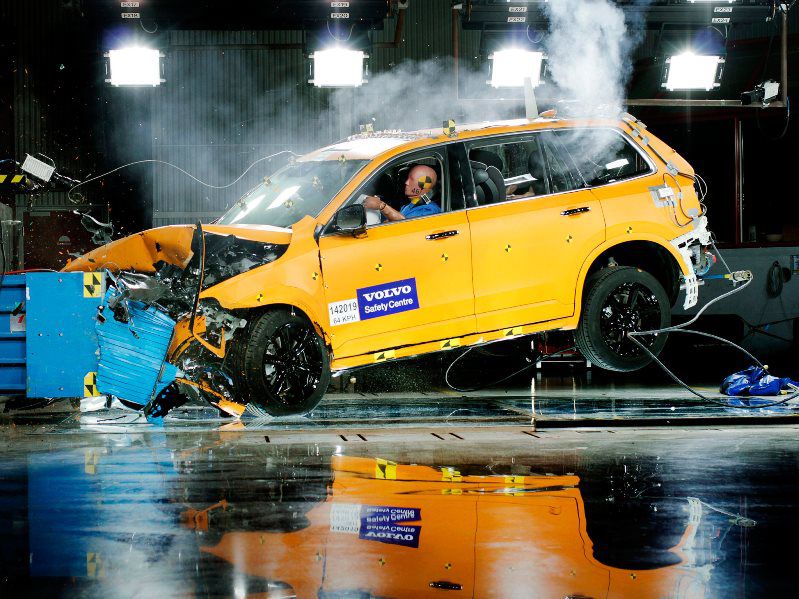
Photo by Volvo
Suspension and Steering Damage
One of the most overlooked areas for repair is a car's suspension. Suspension components take a lot of abuse in normal driving. It gets worse if there are plenty of potholes and speed bumps in your area. If the vehicle has shimmies and shakes, or if it likes to pull to one side when you release the steering wheel, chances are good that a suspension repair is needed.
On top of that, normal wear means that a suspension refresh is often needed by the time a vehicle reaches 100,000 miles. The soft rubber bushings that hold the wheels in alignment while minimizing road vibrations can become brittle or just disintegrate over time. McPherson struts and shock absorbers also lose their effectiveness. By the time you add up the parts cost and a fresh alignment, and maybe replacing a bent wheel, a suspension job can be as expensive as any repair.
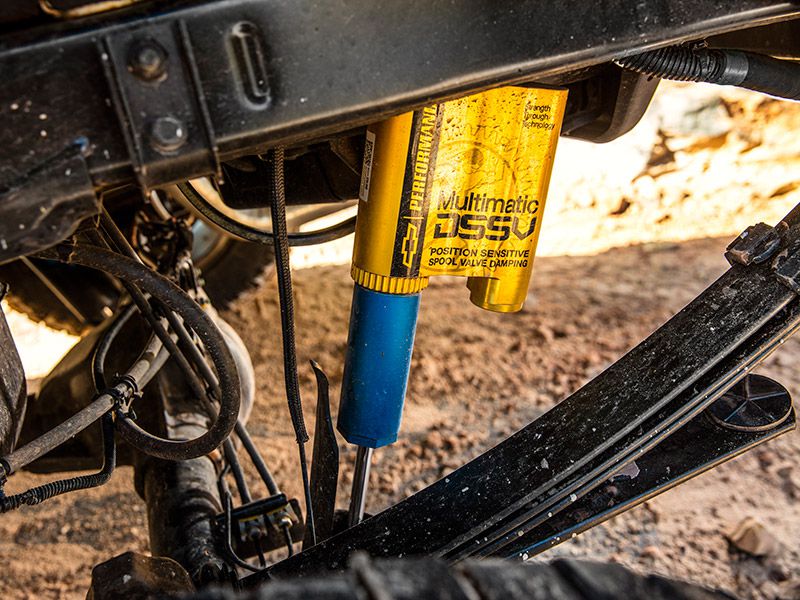
Photo by General Motors
Replacing a Turbocharger
Many modern vehicles are turbocharged to create more power. Owners may not know that a turbocharger can spin up to 100,000 rpm to create air pressure in the intake. Turbos typically share the engine's oiling system, and oil flow is critical to keep that turbo bearing from overheating. Just as the engine can be damaged by low oil pressure, so can the turbo.
Another problem can arise if non-synthetic motor oil is used with a turbo engine. Traditional oils can leave deposits in the high-heat environment inside a turbocharger, eventually blocking oil flow. Depending on how it fails, a broken turbo can mean replacing the intercooler and parts of the air intake system as well as just the turbo itself. That can lead to a large bill.
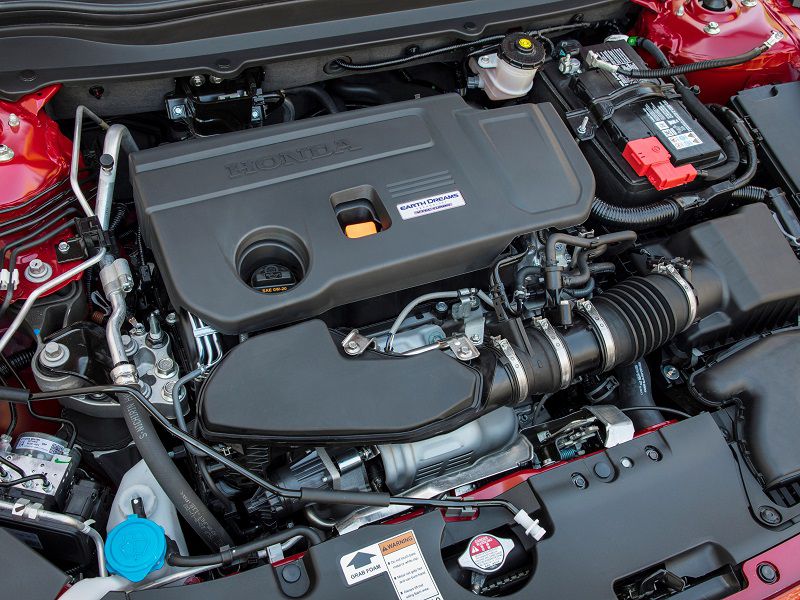
Photo by Honda
Repairing Water Damage
One set of problems that may defy repair at any cost is water damage. After a major flood, the market will be full of used cars that have been cleaned up but may have lingering damage.
Exposure to water causes electrical components to short out and corrode. If you think about it, a car that has flooded is a lot like dropping your mobile phone into a sink full of water. You may get it working again, but it's never quite the same afterward. Always check a used car for water damage. Otherwise, you might spend a small fortune chasing electrical problems that come and go.
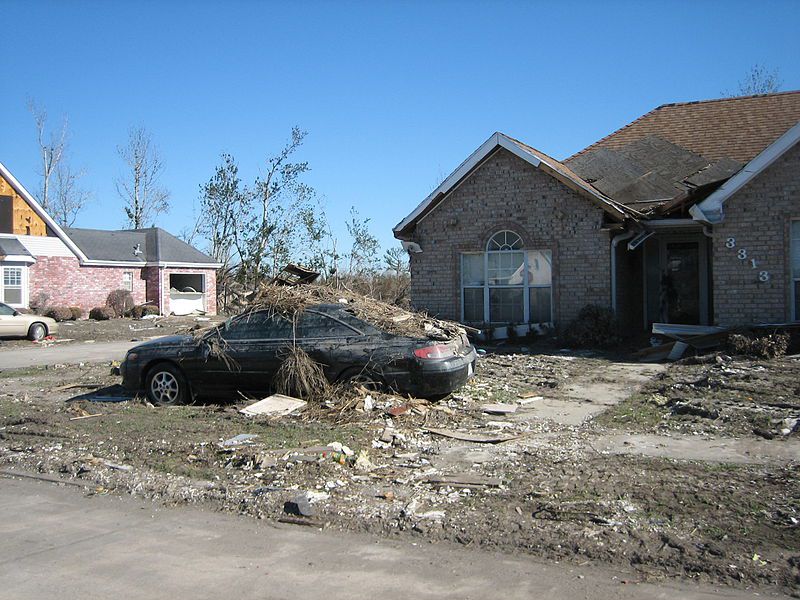
Photo by Wikimedia Commons
Replacing a Catalytic Converter
The catalytic converter is an important emissions-control device. For the most part, drivers take these for granted because they don't require any maintenance. But a clogged catalyst simultaneously robs your vehicle of performance while increasing harmful pollution. Replacing a damaged catalyst can easily run over $1,000.
Catalysts are designed to last hundreds of thousands of miles. If a vehicle is burning oil, or lead-based additives have been placed in the gasoline, the resulting impurities in the exhaust stream get trapped in the catalyst and prevent it from functioning. When a catalyst is ruined, there's no repair possible; you just have to buy a new one.
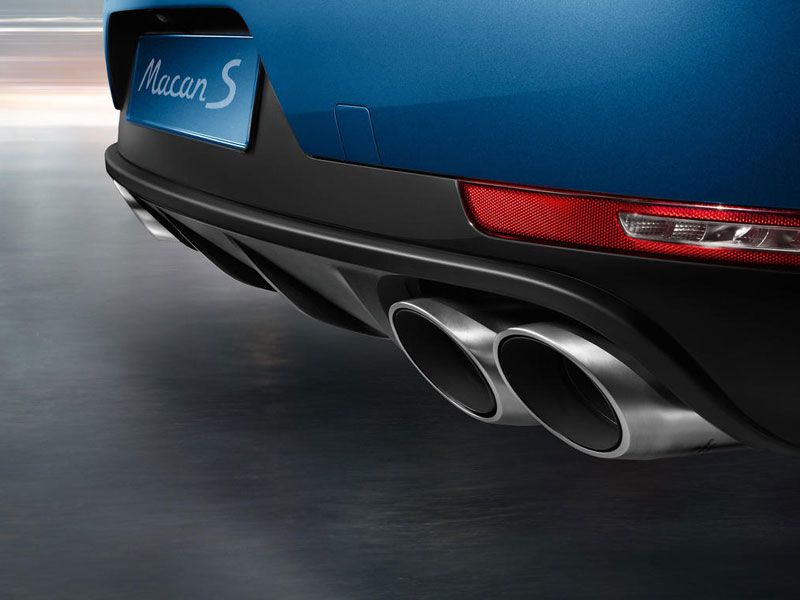
Photo by Porsche
Air Conditioner Repair
Finally, a vehicle's air conditioning system can lead to expensive repairs. The air conditioner is a closed system, and any cracks or leaks will cause the coolant to evaporate into the atmosphere. The system also requires a compressor that is generally driven by a serpentine belt on the engine.
A vehicle's air conditioner does more than keep you cool in summer. It also helps keep the vehicle defrosted and the windows clear in winter. It's tempting to put off repairs, thinking that the air conditioner is a luxury, but in fact it's part of a necessary safety system keeping the windows clear. Be sure to service the air conditioning and keep that system in good condition to avoid expensive repair bills.
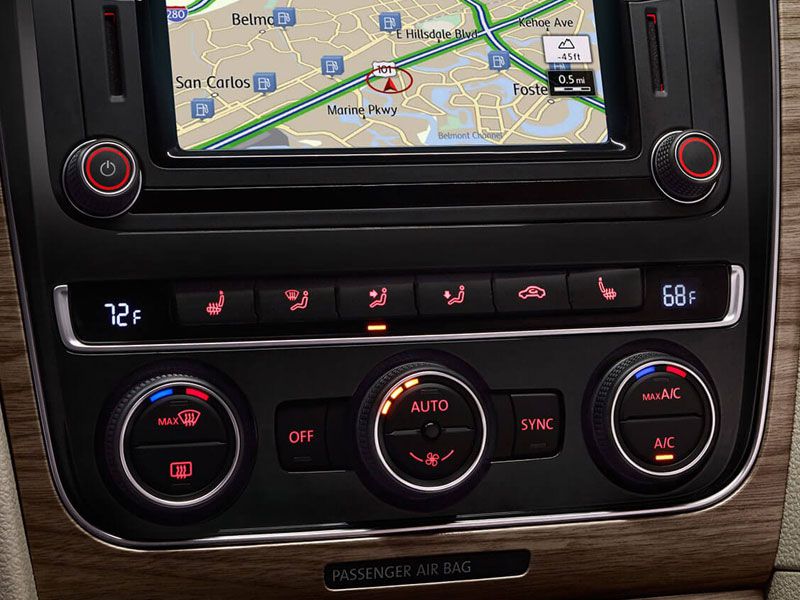
Photo by Volkswagen